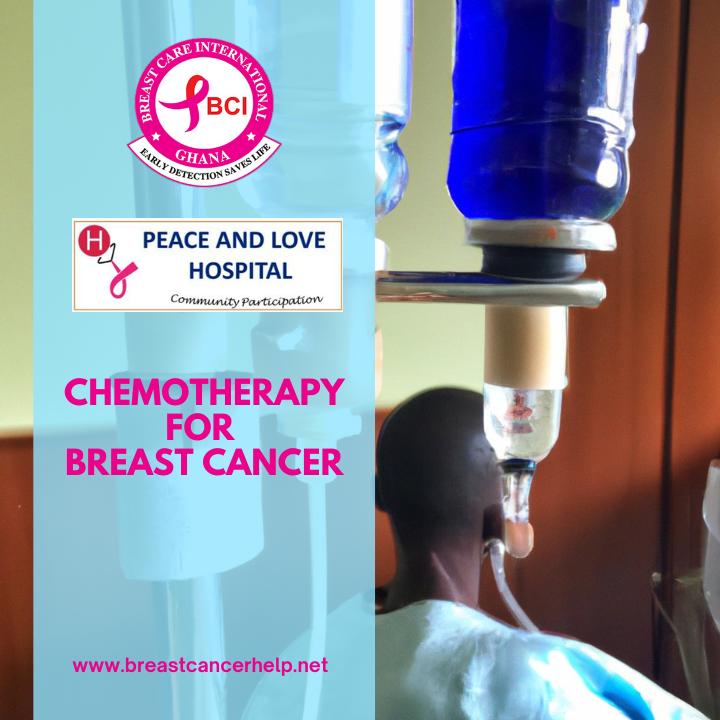Chemotherapy for Breast Cancer
Chemotherapy for breast cancer treatment involves the use of powerful drugs to either eliminate cancer cells or inhibit their growth. It is an integral part of comprehensive cancer care and is often used in combination with other treatments like surgery or radiation therapy.
TABLE OF CONTENT - chemotherapy for breast cancer

What is chemotherapy for breast cancer
The goal of chemotherapy is to target cancer cells throughout the body, even those that may have spread beyond the breast, in order to reduce the risk of recurrence and improve overall survival rates. In this section, we will explore the different aspects of chemotherapy as a treatment option for breast cancer, including its mechanisms, administration methods, potential side effects, and its role in personalized medicine.
Chemotherapy for breast cancer treatment is an essential component, especially for patients who may have cancer cells that have spread beyond the breast. It involves the use of powerful drugs to destroy or slow down the growth of cancer cells throughout the body. The drugs used in chemotherapy work by targeting rapidly dividing cells, which include cancer cells. This helps to eliminate or inhibit their growth. The specific drugs and combination therapy used will depend on factors such as the stage and type of breast cancer, overall health, and individual patient preferences. Chemotherapy can be administered in various ways. The most common methods are intravenous (IV) infusion, where the drugs are given directly into a vein, or through oral tablets or capsules that are taken by mouth.
Sometimes, chemotherapy may also be delivered directly to a specific area using methods such as intraperitoneal or intrathecal administration. While chemotherapy is effective in killing cancer cells, it can also affect healthy cells that divide quickly like those found in hair follicles and the lining of the digestive system. This can lead to side effects such as hair loss, nausea and vomiting, fatigue, and changes in blood cell counts. However, advances in supportive care have helped manage these side effects more effectively.
In recent years, there has been a shift towards personalized medicine approaches for breast cancer treatment. This involves tailoring treatment plans based on individual characteristics like genetic makeup and tumor biology. Through advances in molecular profiling techniques, healthcare providers can better identify specific subtypes of breast cancer that may respond differently to various treatments including chemotherapy. In conclusion, chemotherapy plays a crucial role in comprehensive breast cancer care by targeting both primary tumors and potential metastatic sites throughout the body. While it does come with potential side effects due to its impact on healthy cells as well as tumor ones but advancements continue to improve its efficacy while minimizing adverse effects.
Chemotherapy side effects
Chemotherapy is a common treatment option for cancer, but it can also have some side effects. These side effects vary from person to person and depend on the specific chemotherapy drugs being used. Some common side effects of chemotherapy include nausea, vomiting, hair loss, fatigue, and a weakened immune system. However, it's important to note that not everyone will experience all of these side effects and they can be managed with medication or other supportive measures. It's always best to consult with your healthcare provider for personalized information about the potential side effects of your specific chemotherapy treatment. Chemotherapy is indeed a common treatment option for cancer. While it can be effective in fighting cancer cells, it may also cause certain side effects.
The specific side effects experienced by individuals can vary depending on the chemotherapy drugs being used and the person's unique response to treatment. Nausea and vomiting are among the commonly reported side effects of chemotherapy. These symptoms can be managed with anti-nausea medications prescribed by your healthcare provider. Hair loss is another possible side effect, but it's important to note that not all chemotherapy drugs cause hair loss, and even if they do, hair usually grows back after treatment ends. Fatigue is another common side effect of chemotherapy. It can range from mild tiredness to more severe exhaustion. Resting when needed and maintaining a balanced lifestyle with proper nutrition might help manage fatigue levels.
Chemotherapy may also weaken the immune system temporarily, making individuals more vulnerable to infections. Your healthcare provider will monitor your blood cell counts regularly and take appropriate measures if necessary. Remember that not everyone experiences all of these side effects, and some people may experience additional ones or none at all. It's essential to discuss potential side effects with your healthcare provider before starting chemotherapy so that you have a clear understanding of what to expect based on your specific treatment plan. Your healthcare team will provide you with personalized information about the potential side effects you might encounter during your specific course of chemotherapy treatment. They will guide you in managing these symptoms effectively through medication or other supportive measures designed to help alleviate any discomfort experienced during this time.
Conclusion
Chemotherapy is a treatment option that is commonly used for individuals with breast cancer. It may be recommended based on various factors, including the stage and type of cancer, as well as other individualized considerations. The purpose of chemotherapy for breast cancer treatment is to kill cancer cells or prevent their growth and spread throughout the body. It can be an important component of a comprehensive treatment plan for breast cancer patients, often used in conjunction with surgery and radiation therapy.